Nigel Farage is Britain’s unofficial ambassador to the United States
On Saturday, late British time, former President Trump and presumptive nominee to be the Republican candidate for November, survived assassination by mere millimetres. A bullet, fired from an AR-15, aimed at Donald Trump’s head grazed his ear instead, thanks to an unbelievably lucky turn of the head as Trump looked at the graph on immigration statistics behind him.
A shooter on the roof of a nearby building, missed through a toxic combination of incompetence and lack of coordination between security forces, shot at the former President several times before being taken down by the security forces. The forces who, it has come to light, had the shooter in their sites for several minutes before he began shooting. Arguments have erupted over whether the threat should have been neutralised sooner, or by who, but in reality he should never have gotten that close. The entire security service should hang its head in shame.
While the world rushed to condemn – or, in the particularly nasty and degenerate corners of the internet, celebrate – the 20-year old shooter, the leader of the Reform party and newly-sworn in MP for Clacton, Nigel Farage, announced that he would imminently be travelling to the US to visit his friend and fellow traveller on the populist right, to lend his support.
The necessity of this move can be debated. Prime Minister Sir Keir Starmer has already rung Trump and offered his wishes, and the 78 year old Republican is already out and about, back on the campaign trail and preparing for the Republican National Convention in Milwaukee this week. This is without even mentioning the fact that, after being shot, Trump got back to his feet, raised his fist in defiance and chanted “fight!”
Some rushed to decry Farage’s decision, pointing to his responsibility as an MP, and no doubt using this as an example of his unprofessionalism and self-aggrandisement. Others said that there is no real need, and Farage should focus on issues closer to home, especially as the King’s Speech is on Wednesday – though Farage did say he would not go before the speech.
Such reactions ignore the humanity of this situation. A man nearly lost his life, and while Farage’s medical credentials are certainly questionable in this instance, the value of having a friend speak to you and visit you after such a shocking moment can be invaluable. And while there is a world of difference between the projectiles, Farage is almost certainly fearful that one day a milkshake might be something closer to what Trump faced. Never forget that Andy Ngo once had to attend the ER in America after a milkshake thrown over him was found to have concrete mixed in.
Moreover, Farage was more than likely going to attend the RNC in Milwaukee this week anyway; this simply makes his visit more personal.
Yet, whether you agree with his politics or not, Farage’s very close relationship with the once-and-probably-future President of the most powerful nation in the world should not be sniffed at. Farage, like him or not, is going to be an asset should Trump return to the White House in January 2025 – a prospect that, more than ever, seems likely.
Rather than criticising Farage for making a decision which, it must be remembered, is entirely his prerogative – senior Conservatives visited America during the election campaign, and Lisa Nandy was in Germany for the Euros final this weekend, and rightly so – the British government should recognise Farage’s value in the special relationship.
This is not even to mention the fact that many populist parties in Europe look to the architect of Brexit with great admiration, Nigel Farage’s international profile is greater than some members of the cabinet, and is certainly more amenable to some foreign political parties.
Nigel Farage’s role in the coming parliament is likely to be one of unofficial ambassador – to the United States, certainly, and more than likely many other nations. It would be a mistake to undervalue and underestimate that.



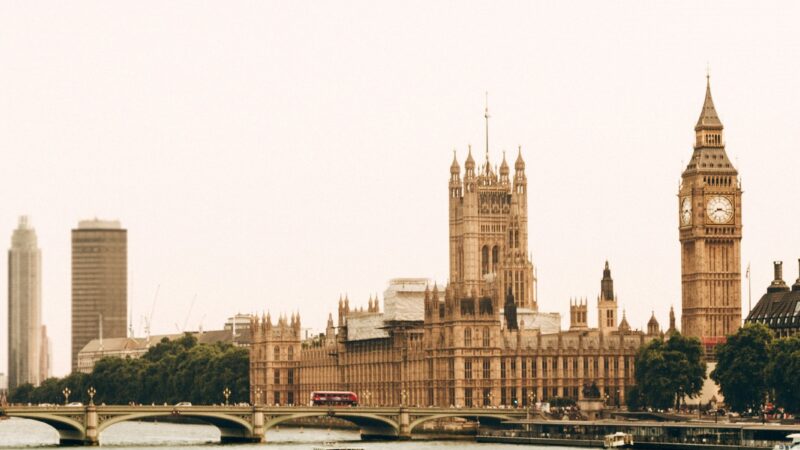
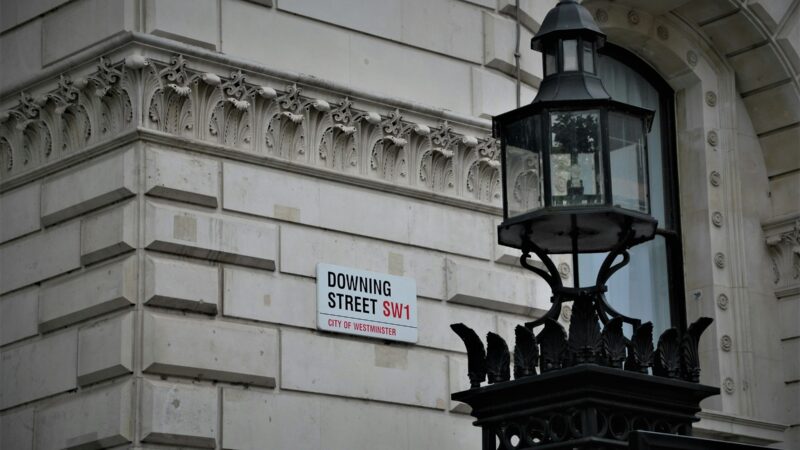
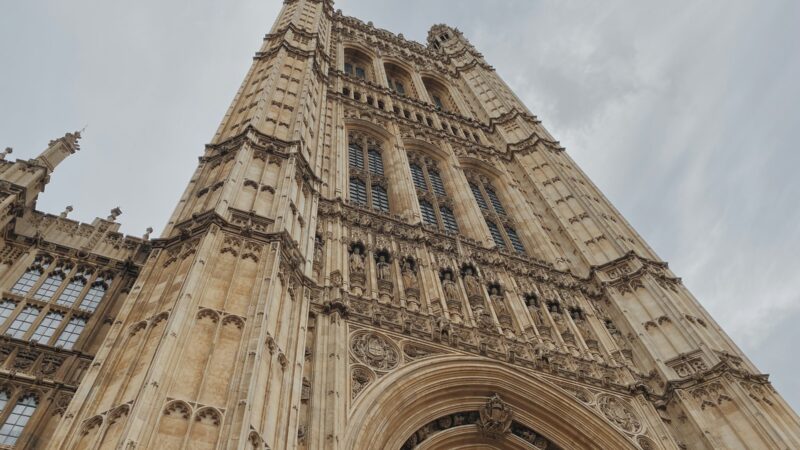
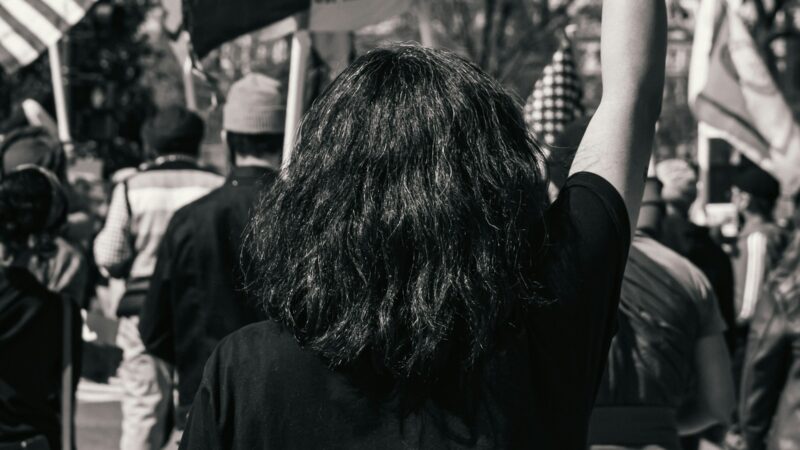
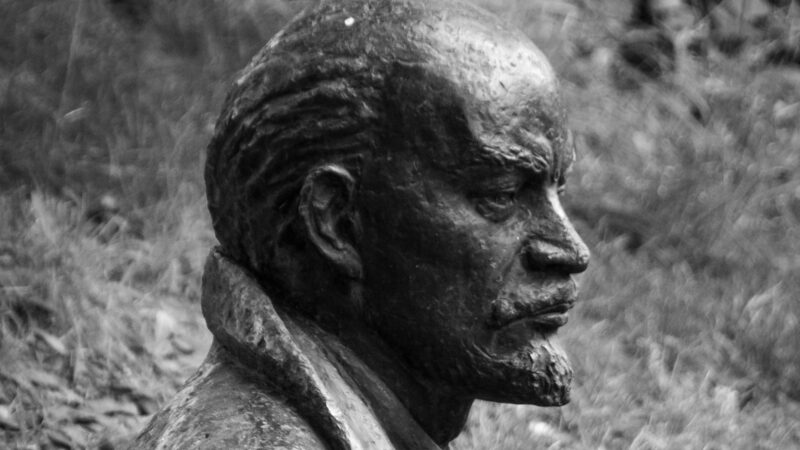

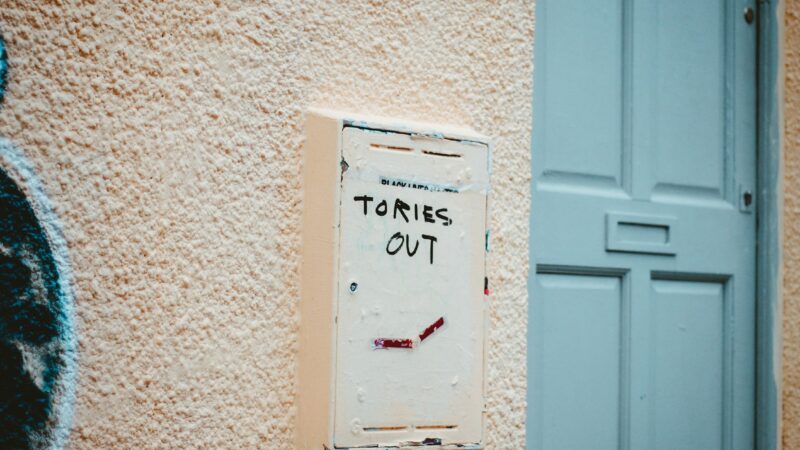
With Friends Like These, Who Needs Enemies?
Several months have passed since Hamas orchestrated the surprise attacks against Israel in the notorious and brutal events of October 7th, one of the bloodiest days in Israel’s modern history, with over a thousand people killed or kidnapped by Hamas – consequently launching the war in Gaza, and the prolonged campaign of Netenyahu’s government against Hamas and its supporters.
Needless to say, the Israeli response to such an outrageous and devastating attack against civilians has been swift. Combined strategic responses of aerial bombardments, drone strikes, and ground forces swelling into Gaza have been unrelenting, like a jackhammer.
Since October 7th, and the resulting war that followed, social media has erupted with images and videos coming out of Gaza detailing the quite dire humanitarian crisis currently occurring. It’s hard to estimate how many civilians have been killed during the war, but it is likely within the tens of thousands, with more and more adding to the body count as each day passes.
The position of Gaza has also made the situation even more difficult to control, as civilian aid is becoming harder and harder to access through narrow strategic corridors and lack of proper organization and distribution. Vital resources like food, water, and medicine aren’t ending up in the hands of the people that need it the most – if the bombs and the bullets don’t kill the people on the ground, the lack of resources will.
The shock and fury felt across the world after being confronted with this crisis has become a key issue in the West, with countless organized protests at universities and in the streets of capital cities, all demanding that Western nations stop funding the Israelis as they continue their military campaign in the heart of Gaza. This pro-Palestine movement, which is quite broadly supported by those with left-leaning ideologies and intersectionalists, has become an impressive political bloc – especially since it is an election year for both Great Britain and the United States.
Which is frankly quite funny, as most of the people in the pro-Palestine camp, chanting the mantras and songs of Hamas would be shunned by the very same groups they feel the need to protect. In fact, many already have.
Meanwhile, especially amongst “Christian conservatives” in the media and online, there has seemingly been a blank check of support given towards Israel – especially Netenyahu and his Likud government.
After all, Hamas is a terrorist organization, and anything that stops Islamic fundamentalist terror is worth supporting, right? We simply have a moral duty to support Israel, regardless of how blatantly horrific the situation is on the ground. Tax dollars and civilian casualties are a small price to pay for FREEDOM and the protection of “Judeo-Christian” values.
It’s exhausting, but no matter which way you look at it, this will be a defining political issue for the next decade, if not even longer.
And, as always, instead of being able to approach the issue with any level of nuance or recognition that both sides in this conflict seem to be as equally awful and hostile to us as they are to each other, we will once again be put into this binary choice of being “with” or “against” either side. The arguments will be circular, and the cycle of destruction will continue while only a handful of people end up benefiting – mainly weapons contractors and political donor groups.
Before I jump into the beef of this piece, I want to express my outright condemnation of terrorism and terror groups. I feel as if I am obliged – although I think it’s entirely self-evident – to say this, because undoubtedly there will be those who take what I have to say next as an endorsement of Hamas or other fundamentalist Islamic radicals in their war against the State of Israel.
It isn’t. Read the last two paragraphs again if you are confused about where I stand on this issue.
So now that terrorism has been condemned, let’s continue to condemn and reevaluate our unconditional alliance with Israel; because frankly their accusations against Hamas and Palestine is a case of the pot calling the kettle black.
Don’t believe me? I doubt many have had the chance to delve deep into this issue, so let’s start with a little history lesson, shall we?
To understand the Israel of today, you don’t just go back to the partition of Palestine and founding of the State of Israel in 1947, you have to go back a little further in the century, back when the land we now know as Israel was a part of the Ottoman Empire.
Back at the start of the 20th century, when the world was rapidly changing, and revolutionary attitudes were spreading like wildfires, small groups of militias and rebels were beginning to emerge in Palestine.
“In fire and blood did Judea fall; in blood and fire Judea shall rise” was the motto of the group known as Bar-Giora (later “Hashomer”).
Originally this paramilitary organization’s goal was to defend Jewish settlements in the Ottoman Empire from attacks by local Arab populations.
Seems noble enough at first glance, and perhaps it was in intention, but this paramilitary organization, which was led by young, often Marxist-aligned rebels, did not just intend to play defense, but rather grow strong enough and large enough that they could create an effective offense against their Arab neighbors. And judging by their slogan, one can piece together that they weren’t exactly willing to compromise or negotiate peacefully in order to fulfill their goals of establishing permanent Jewish settlements in the region.
After World War One, as the British took control of Palestine, thus leading many members of Bar-Giora/Hashomer to join the Jewish Legion of the British Army in Palestine, as well as assuming positions in the local, British-backed law enforcement.
During the Arab riots of 1920-21, many Jewish settlements and Palestinian Jews suffered attacks at the hands of Palestinian Muslims. Believing that the British were unwilling, or unable, to confront the Muslim majority, these now formally-trained soldiers splintered off and founded “Haganah”.
Haganah went from being a rather unorganized militia to a funded, armed, and large underground army within a matter of years, and would serve as the foundation for what we see as the IDF today.
Again, while noble in intentions – to protect Jewish settlements – you’re only as good as the bad apples in the basket. It didn’t take long for splinter groups to form out of Haganah, namely Irgun, Palmach, and Lehi.
These groups all had a common resentment towards the British authorities – especially because of the White Paper declarations in 1922 and 1939 that sought to limit the amount of Jewish Europeans emigrating to Palestine, in order to not disrupt relations with the local Palestinians and allow for a slow-bleed assimilation of Jews into the region.
An idealistic approach, and perhaps a fool’s venture – but given the current state of things in the region, I’m sure the policymakers of the Empire had good reason to do so.
Palmach was a more formidable armed force, which was allied with the British in WWII and fought against Axis powers in the region. Eventually, after the war, the British ordered that the independent Palmach was disbanded, but operations simply moved underground, and Palmach found a new enemy with the British Mandate – they conducted several operations, including bridge bombings and night-time raids, against British assets in the region – all in response to the White Paper policies.
Irgun started in the late 1930’s as an offshoot of Haganah, and much like Haganah was initially a defensive force. However, after a prolonged period of Arab attacks and Irgun-conducted reprisals, the organization became more focused on arming, training, and conducting operations against anyone deemed a threat – this included the British authorities, who were trying to control the anarchy and fighting that was constantly breaking out in Palestine between factions of Jews and Arabs.
Lehi was founded by Yair Stern as a splinter of Irgun, and was composed of the more radical and violent Zionists of the time – some of whom even sought alliances with Hitler and Mussolini as they saw the British as a larger threat to their existence. They were self-described terrorists, as outlined in their underground newspaper, He Khazit;
Charming mantra, to say the least.
Now, let’s take a look at a couple of notable examples of Zionist terrorism at the time, such as the King David Hotel Bombing.
The attack, which took place in July 1946, was carried out because the hotel was the headquarters of the central offices of the British Mandatory authorities of Palestine, as well as the British Army in the region. The bombing was in retaliation of the British conducting search and seizure operations of arms against the Jewish Agency in Palestine and to stop Palmach sabotage operations.
This attack claimed the lives of 91 people – Arabs, Jews, and indeed Britons – as well as injuring 46 others.
Another example, shall we?
The Deir Yassin Massacre – April 9th, 1948. Igrun and Lehi fighters raided the village of Deir Yassin in the morning, killing civilians with hand grenades and guns, indiscriminately. Around 110 villagers, including women and children were killed in the attack – some of whom were kidnapped and paraded in the streets of West Jerusalem before being executed.The village was then seized, the rest of the villagers expelled, and the village was renamed Givat Shaul.
How about political assassinations?
Walter Guinness, The Lord Moyne, was shot and killed in Cairo along with his chauffeur on the 6th of November 1944 by two members of the Lehi terrorist organization. Guinness was targeted as he was seen as responsible for Britain’s policy in Palestine, and was accused of being sympathetic to the Arabs.
Or, Folke Bernadotte – Swedish diplomat and a man who almost single handedly negotiated the release of 450 Danish Jews and thousands of other prisoners from the Theresienstadt Concentration Camp during WWII. Folke was appointed to be the UN Security Council’s mediator for the Arab-Israeli conflict, and was shot and killed by Lehi members while conducting his duties to end the conflict.
There are many, many more examples of explicit acts of terrorism, targeted assassinations, kidnappings, and other quite ghastly actions conducted by these radical Zionist groups, but now I think it would be constructive to see the legacy that these groups left, and a few notable Israelis were sympathetic, or a part of these organizations.
After the assassination of Folke Bernadotte, Lehi was formally disbanded and its members were arrested by the now established State of Israel. Happy ending, right? Wrong!
Lehi members were given a general amnesty right before the 1949 election, and in 1980 the Israeli government commissioned a military decoration named after the group, called the Lehi Ribbon, an “award for activity in the struggle for the establishment of Israel”.
Irgun, the group responsible for the King David Hotel bombing, was absorbed into the newly created IDF in 1948. While the paramilitary organization was formally disbanded in 1949, its members would later become the founders of the Herut Party – Herut would later merge into the Likud Party, one of the largest political parties in Israel, and the party that currently holds power.
David Ben-Gurion, 1st Prime Minister of Israel, supported the bombing of the King David Hotel, although later he publicly condemned it. While Ben-Gurion was a leader of the Jewish Agency, he did little to help the British in stopping the operations of Lehi and Irgun.
Menachem Begin, 6th Prime Minister of Israel, was an active member of Irgun, and became a commander of the terrorist organization in 1943. He was the founder of the Herut Party in 1948 (which later became known as “Likud”).
Yitzhak Shamir, 7th Prime Minister of Israel, was a leader of the Lehi terrorist group during its operational years. Shamir was responsible for plotting the assassination of Lord Moyne, and of Folke Bernadotte during his tenure as the leader of Lehi. In 1955, he joined Mossad, where he orchestrated Operation Damocles – targeted assassination of German rocket scientists assisting Egypt’s missile program.
Fascinating, to say the least. Some absolutely dreadful people, who ended up in the highest office of their country, and, somehow, allied with Britain, the very power they sought to expel from their nation. I can only imagine how awkward those Israeli meetings with the various Prime Ministers of the UK must have been – that is, of course, if those Prime Ministers had actually known or cared about what crimes these people were responsible for, and the British blood that they shed in order to achieve their goals.
Because, fundamentally, this nation is hostile. Not only to its immediate neighbors in the Middle East, but to us in the West as well.
Does anyone in their right mind think that almost a century of ideology, propaganda and leadership by vehemently anti-British, and by extension anti-Western political figureheads and former terrorists somehow is just washed away with time?
It is ludicrous that somehow, the political party that is in power, which was founded by the very terrorists who conspired and successfully carried out attacks against the British, has simply forgotten or somehow changed its foundational core values.
These roots run deep – and by observing the current administration of the Israeli government, we can see that the most important positions are occupied by hardcore, uncompromising Zionists who undoubtedly share the same values as their predecessors.
If this was an issue which was only relegated to the Middle East, I doubt anyone in the West would need to care. But unfortunately, due to the billions of dollars of donations from Israeli-aligned political groups, the billions of dollars of weapons deals done with Israel, and the overindulgent culture of philo-Semitism in Western governments, we in the West are unfortunately tethered to this country, its issues, and the repetitive cycle of destruction and death that it generates.
We are told that we have a moral obligation to support Israel, out of vague notions of protecting the “only functional democracy in the Middle East”, or through beating the drum of Holocaust guilt that, somehow, if we don’t stand by Israel and its campaigns of “self-determination” (i.e. constant expansion) we are somehow antisemites and no better than the Nazis.
Our governments even flirt with, if not having already passed legislation, that will limit our free speech in our countries if we dare criticize the Israelis for taking their war and destruction against a severely outgunned Palestine as being a little too far. The United States House just recently passed a bill that would severely curtail the ability to criticize Israel and its actions, under the guise of trying to stop anti-semitism on college campuses.
Especially on the cusp of important elections in the UK and the United States, how can any patriotic, nationally-minded voter bring themselves to the ballot box and vote for politicians and parties that are so explicitly Zionist that they take their mandatory trip to the Wailing Wall as soon as they are elected for a photo op and a corny declaration of allegiance to a foreign nation?
So here we are. Our fates tied to the ambitions of a small nation in the desert. While they continue to expand violently and push outward, as was the vision of the founders of their country, we in the West are meant to just sit back, and fork over our tax dollars to let it happen over some very unclear obligation that we are told we have.
Israel has demonstrated that it is only willing to participate in a friendship with the West that is one-sided; where they reap the benefits of lucrative weapons deals and endless political support while giving no concessions or compromise in return. Outwardly showing resentment to the hand that feeds it when something as simple as a ceasefire is asked for so that the humanitarian crisis on the ground can be properly dealt with.
If we are to look at this in a completely pragmatic sense in regards to foreign policy, we gain nothing from continuing to unconditionally support a historically hostile entity, and we lose nothing if we are to cut these imaginary ties and treat them as we treat any other nation.
There’s an old saying, “With friends like these, who needs enemies?”.
Thankfully, especially amongst younger voters – both liberal and conservative – many are already starting to reevaluate that unquestioning love for a foreign nation that has a long and violent history towards its current allies.
Photo Credit.